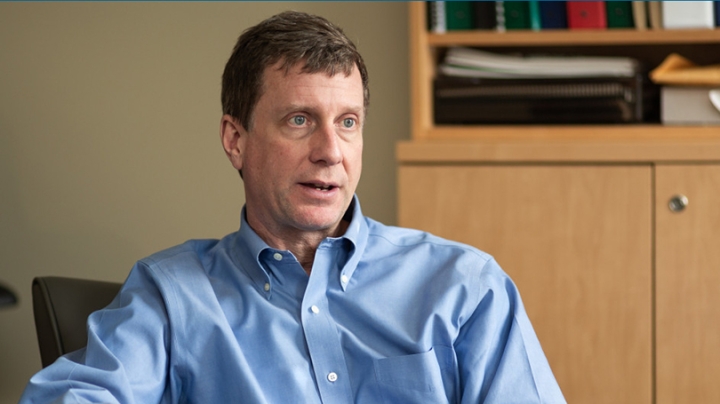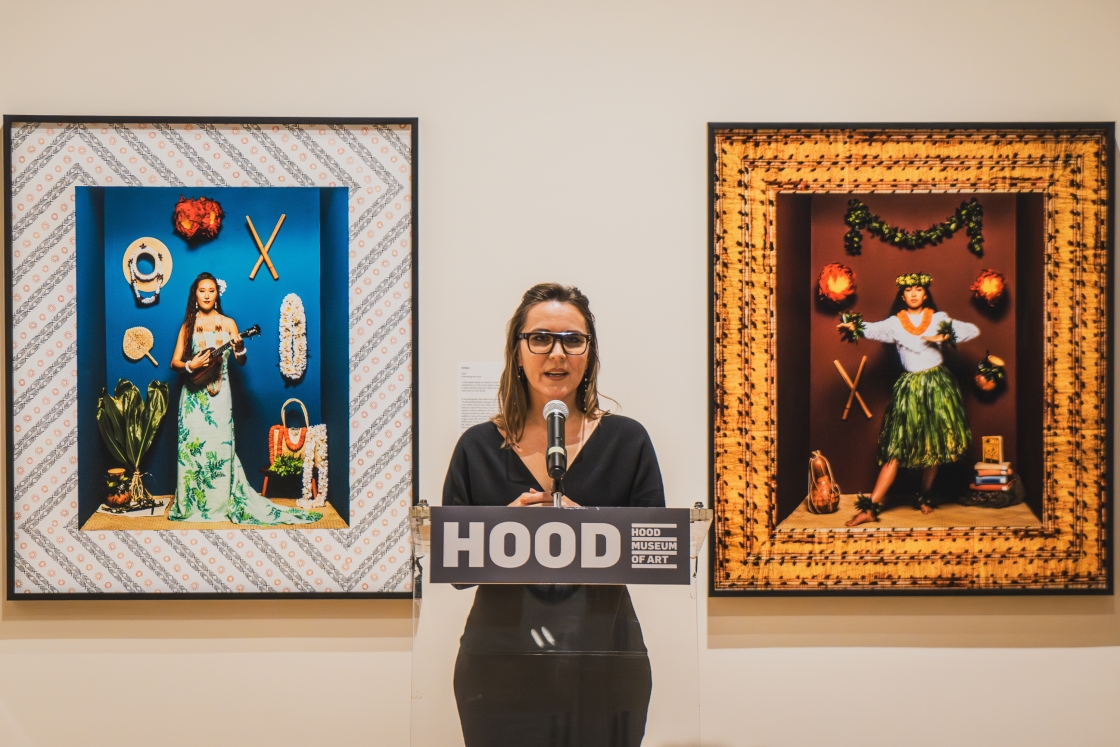There’s more than a name change in store for the graduate school, thanks to a gift from Frank J. Guarini ’46 announced on April 27 at the New York City kickoff of Dartmouth’s $3 billion capital campaign, The Call to Lead.
The gift from Guarini, a former New Jersey congressman and U.S. representative to the United Nations, follows commitments totaling $20 million in support of Dartmouth’s foreign studies programs. In 2013, Guarini made an initial commitment of $10 million to endow the Frank J. Guarini Institute for International Education, encompassing Dartmouth’s Off-Campus Programs office, which strengthened programs in Europe and helped develop new ones in Africa, East Asia, and Central and South America. A second $10 million commitment followed in March 2017.
This latest gift renames the graduate school the Frank J. Guarini School of Graduate and Advanced Studies.
“This is an exciting time for us,” says the school’s dean, F. Jon Kull ’88, a scientist and the Rogers Professor of Chemistry at Dartmouth College.
“All of us affiliated with the Guarini School recognize that discovery comes at the intersection of many disciplines. Our scale invites collaboration among departments, which leads to the creation of new knowledge. This incredibly generous gift from Congressman Guarini deepens our collaborative commitment, inspiring us in our common task of tackling tough problems and graduating students who go on to become leaders in their fields.”
Kull, who has been a member of Dartmouth’s chemistry department since 2001, continues to teach and to run a research group, where he and a team of graduate students and a research scientist investigate how proteins regulate gene expression in pathogenic bacteria.
Dartmouth established the graduate school in January 2016, the first new school the College had created in more than 100 years. The Guarini School currently has about 800 students in 11 masters and 16 PhD programs. Another 250 postdoctoral students are supported by the Guarini staff. Before the school became a freestanding graduate school, the graduate programs were housed in the Office of Graduate Studies. While the school is new, and the name even newer, Dartmouth’s graduate programs have been around for more than a century, with the first graduate degree awarded in 1885.
Kull recently sat down with Dartmouth News to talk about the Guarini gift. (The conversation was edited for length and clarity.)
DN: What are some of the changes that this gift means for the school?
JK: In general, it is rare for a graduate school to receive such a large gift, so this gift is a transformational opportunity for Dartmouth. It puts the research that the graduate students and our postdoctoral scholars conduct in the spotlight, and it affirms that we are a research institution ranked among the best in the world.
The gift will allow us to move forward with new programs if and when faculty in the arts and sciences, Thayer, Tuck, and Geisel schools propose them, and I expect these will be at the intersections of disciplines, where there currently aren’t graduate programs, but where having graduate students and postdoctoral scholars working with faculty would enable new and exciting research opportunities. We have examples of that now, for example our Ecology, Evolution, Ecosystems, and Society Program, which spans ecology, environmental studies, geography, and anthropology, and looks at both the science and the societal impact of these areas. The Guarini school can support such programs, which don’t have a clear home department.
And we can also respond quickly in new areas where the faculty say, “Here’s a great new area.” For example, we could collaborate with the Irving Institute on a graduate concentration in energy or energy studies, where it would draw from programs in engineering, earth sciences, or environmental studies, and investigate energy issues.
What do you think about Frank Guarini’s decision to make this gift?
The congressman has been supporting Dartmouth for a long time through the Frank J. Guarini Institute for International Education. He loves Dartmouth and he wants to see the institution flourish. We’ve talked about how a gift to the graduate school could be really impactful, and I honestly can’t think of another gift here that would impact as many different parts of Dartmouth as a gift to the graduate school.
Specifically, we support the training and professional development of well over 1,000 graduate students and postdoctoral scholars, and they do research in all of Dartmouth’s schools and in many of our departments. Our programs support virtually all the scientific research at Dartmouth, which represents a huge fraction of Dartmouth’s externally sponsored research; and through this we’re supporting faculty in arts and sciences, at Thayer, Geisel, and Tuck; and finally, we’re supporting undergraduate research through the mentoring that graduate students and postdocs enable—and this is all in one gift.
Looking ahead, Frank Guarini will be associated with every PhD and master’s thesis, and virtually every scientific publication that will be produced at Dartmouth, which is pretty cool. As we talked about that, he got really excited about the impact this could have on so many different aspects of Dartmouth. At first you think that this is only going to help graduate students. But helping graduate students is helping all of Dartmouth, the schools and their faculty, and of course all the undergrads too.
Will the people who graduate in June receive their degree from the Guarini School?
Yes.
Will you add more graduate students?
The school has no plans to increase the number of graduate programs or students, but of course if the faculty want to develop new programs, the school is there to support them.
You have a small grad school staff—seven full-time people in your office, including you. Will that increase?
We have no plans to increase staff. The size of the staff we have is well suited to the size of the graduate population.
And you’re not going to put up a new building?
We’re not building a building. We’re not expanding the staff. This is just allowing us to achieve our core mission better. And that’s really important. We want to educate thoughtful students and postdocs who, wherever they go after Dartmouth—whether it’s academia or industry or policy—will become true leaders. And we also want to support the research that our faculty do. The gift will let us improve the quality of our programs and the support we give our students. For example, we help students and postdocs with support for writing and giving great presentations, collaborate with DCAL to train them in teaching methodologies, connect them with Tuck, Thayer and the DEN for entrepreneurial endeavors, and support many other aspects of their professional development. What we want to offer is a PhD that’s customized to each student.
What’s a small way that this gift will have an impact on the school?
People on campus talk about “the grad school,” but now they’re going to talk about the Guarini school, and everyone’s going to know what that means. It seems like a small thing, but it’s really a big symbolic change. If you ask the graduate students, they might say that this gift is going to really reinforce the fact that Dartmouth values them and what they are doing.
Susan J. Boutwell can be reached at susan.j.boutwell@dartmouth.edu.

